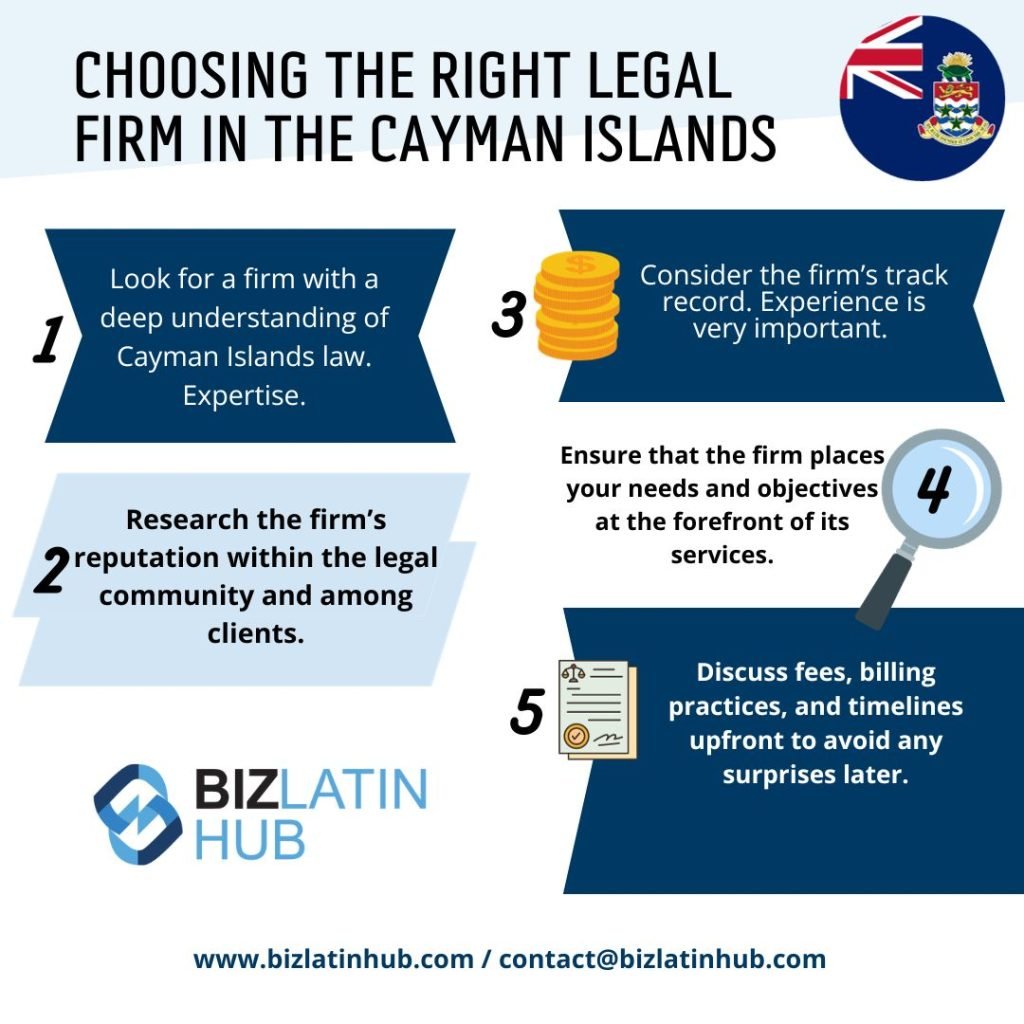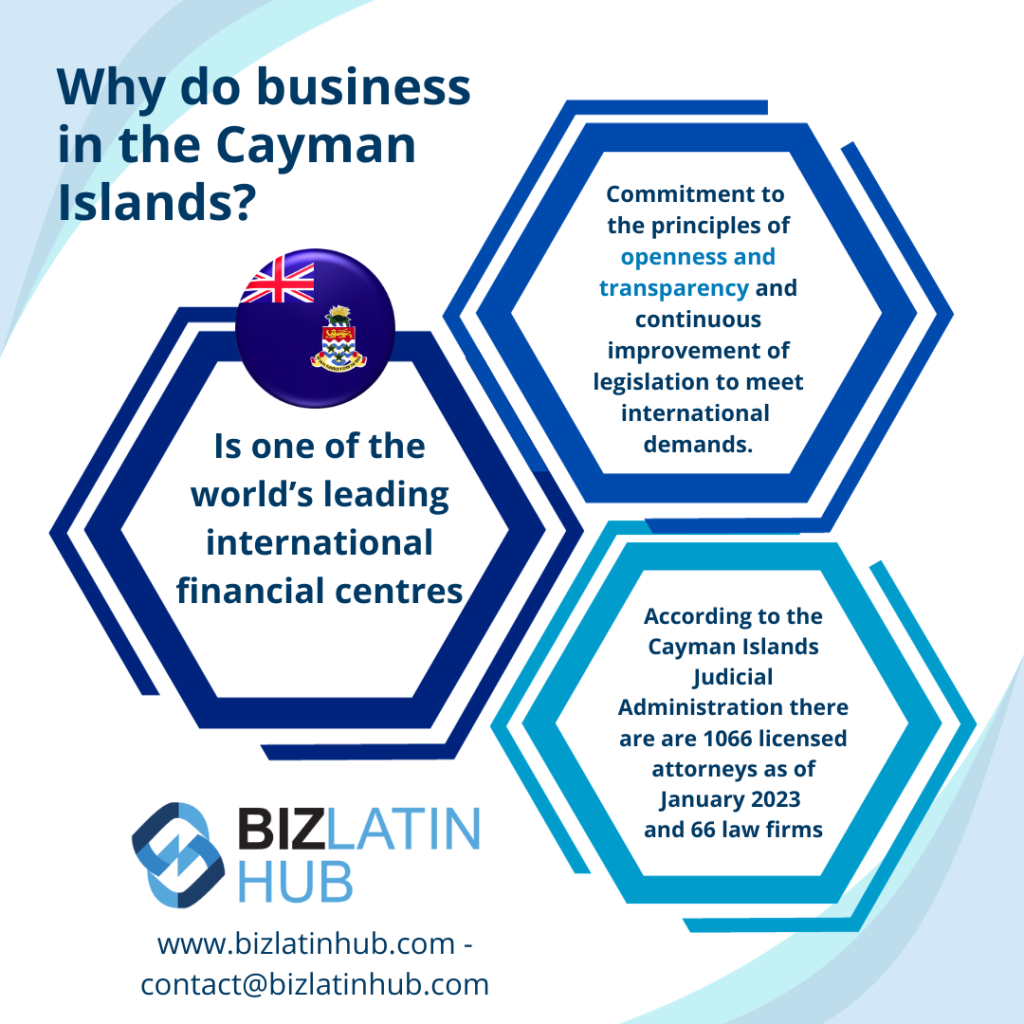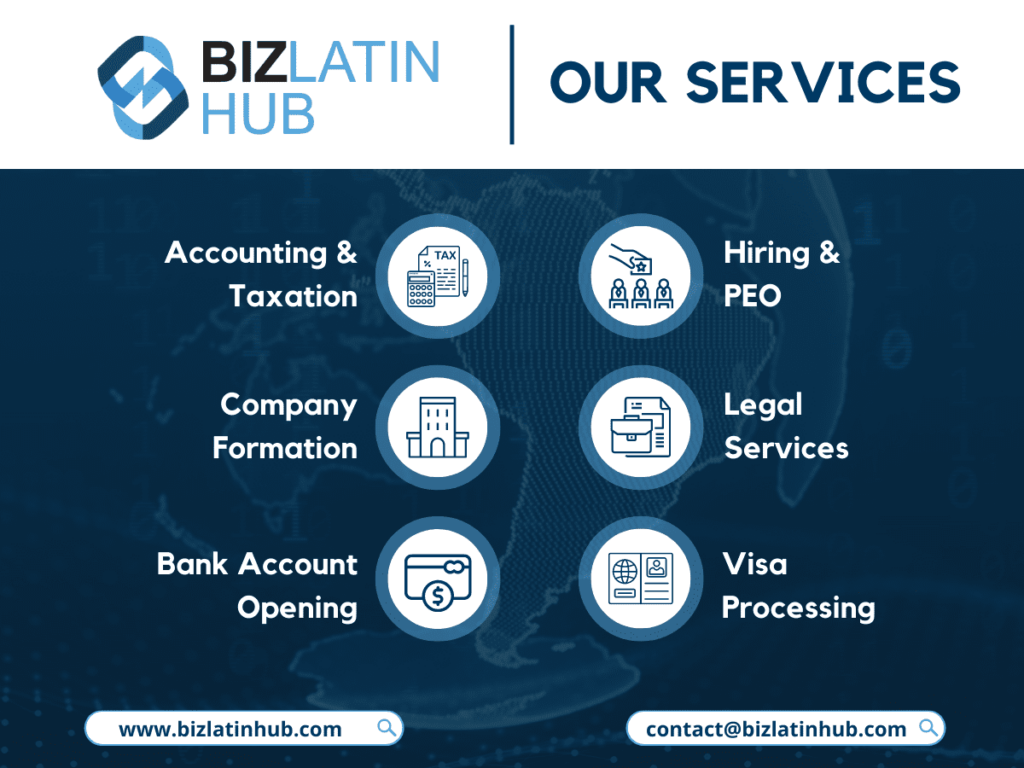Table of Contents
Businesses looking for a good law firm in the Cayman Islands can search for directories or reviews of offshore law firms that specialize in the Cayman Islands’ jurisdiction. Some examples of such law firms are Appleby, Campbells, Conyers, Harneys, and Kobre & Kim. Learn more about Legal Services in the Cayman Islands.
The Cayman Islands with their pristine beaches, crystal-clear waters, and reputation as a global financial hub, have become synonymous with more than just natural beauty. For businesses worldwide, this British Overseas Territory is an attractive destination for offshore financial services and investment.
Whether you’re a startup looking to incorporate, a multinational corporation exploring new markets, or a financial institution seeking a robust legal partner, finding the right legal services in the Cayman Islands is paramount to your success.
In this article, we’ll look into the benefits of company formation in the Cayman Islands and finding a Legal Corporate Firm.

Why the Cayman Islands?
Before delving into the legal landscape, let’s explore why businesses flock to the Cayman Islands. Investors need to find a proven legal firm in the Cayman Islands for several reasons. Some of the benefits are:
- Tax Advantages: The Cayman Islands are well-known for their zero-tax regime. They do not impose any corporation, capital gains, income, payroll, property, withholding, or any other tax on money earned outside its territory. There are no direct taxes on corporations or individuals, no capital gains tax, and no estate taxes. This favorable tax climate is a magnet for businesses and investors alike, and it can help foreign investors optimize their tax efficiency and maximize their profits.
- Stability and Infrastructure: The Cayman Islands offer political and economic stability due to its advanced banking system. The legal system is based on English common law, and the financial infrastructure is robust, including a well-regulated financial services sector.
- Global Financial Hub: With over 100,000 registered companies and a substantial presence of international banks, the Cayman Islands have earned their reputation as a global financial center.
Ease of doing business: The Cayman Islands have a simple and fast incorporation process that can be completed within 1-4 working days, there is no minimum capital requirement, no need for a resident director, and no requirements for annual reporting, accounting, or auditing.
The Legal Landscape
Navigating the legal framework in the Cayman Islands is vital to operating successfully. Whether you’re handling corporate matters, financial regulations, or commercial litigation, having the right legal partner is essential. Here’s an overview of the legal services you may require:
- Corporate and Commercial Law: Companies in the Cayman Islands benefit from a flexible and modern corporate legal framework. Incorporating, structuring transactions, and corporate governance are essential services.
- Financial Services Regulation: Given the prominence of financial services, understanding and complying with financial regulations is crucial. Legal firms can assist with licensing, compliance, and regulatory matters.
- Trusts and Estates: The Cayman Islands are renowned for their trust services. Legal experts can help you establish and manage trusts and navigate estate planning.
- Commercial Litigation: When disputes occur, a commercial litigation team can be invaluable. Resolving conflicts efficiently and effectively is vital to protect your interests.
Choosing the Right Legal Firm
Selecting the right legal services provider is a decision that requires careful consideration. Here are some factors to keep in mind:
- Expertise: Look for a firm with a deep understanding of Cayman Islands law, particularly in your area of interest, whether it’s corporate law, financial regulation, or litigation.
- Reputation: Research the firm’s reputation within the legal community and among clients. Online reviews and referrals can provide valuable insights.
- Experience: Consider the firm’s track record. How long have they been operating in the Cayman Islands, and what notable cases or transactions have they handled?
- Client-Centric Approach: Ensure that the firm places your needs and objectives at the forefront of its services. Effective communication and personalized attention are essential.
- Global Reach: If your business operates internationally, having a legal partner with a global network can be advantageous.
- Transparency: Discuss fees, billing practices, and timelines upfront to avoid any surprises later.

Choose the right corporate legal firm in the Cayman Islands
The Cayman Islands offer a unique blend of natural beauty and financial opportunity. Choosing the right legal services provider is a pivotal step in ensuring your business thrives in this dynamic environment. Whether you’re establishing a new venture, navigating complex financial regulations, or resolving disputes, a reputable and experienced legal firm in the Cayman Islands can be your greatest asset.
Common FAQs for Entity Legal Compliance in Cayman Islands
Based on our extensive experience these are the common questions and doubts of our clients when looking to operate within the country
The following are the most common statutory appointments for Caymanian legal entities:
An appointed Local Director who will be personally liable, both legally and financially for the good operation and standing of the company. This Director can be the same as the shareholder and can be either a local national or a foreigner.
Yes, a registered local Fiscal Address is required for all entities in Cayman Islands for the receipt of legal correspondence and Governmental visits.
As you embark on your Cayman Islands business journey, remember that the legal services you choose can be the difference between success and obstacles. Make your choice wisely, and your business can flourish in this Caribbean paradise.
Disclaimer: This article is for informational purposes only and should not be construed as legal advice. Always consult with qualified legal professionals for guidance on your specific legal needs in the Cayman Islands.
Biz Latin Hub can help you with legal services in the Cayman Islands
At Biz Latin Hub, we provide integrated market entry and back-office services throughout Latin America and the Caribbean, with offices in Bogotá, and Quito, as well as over a dozen other major cities in the region. We also have trusted partners in many other markets.
Our unrivaled reach means we are ideally placed to support multi-jurisdiction market entries and cross-border operations.
As well as knowledge about legal services in the Cayman Islands, our portfolio of services includes hiring & PEO, accounting & taxation, company formation, bank account opening, and corporate legal services.
Contact us today to find out more about how we can assist you in finding top talent or otherwise doing business in Latin America and the Caribbean.
If this article on legal services in the Cayman Islands was of interest to you, check out the rest of our coverage of the region. Or read about our team and expert authors.

The information provided here within should not be construed as formal guidance or advice. Please consult a professional for your specific situation. Information provided is for informative purposes only and may not capture all pertinent laws, standards, and best practices. The regulatory landscape is continually evolving; information mentioned may be outdated and/or could undergo changes. The interpretations presented are not official. Some sections are based on the interpretations or views of relevant authorities, but we cannot ensure that these perspectives will be supported in all professional settings.



.png#keepProtocol)




.png#keepProtocol)
More Stories
Big Bridge Sways 2024
Top 11 Free 3D Modeling Software in 2024
Shanghai cooperation zone to bolster links between domestic, global players